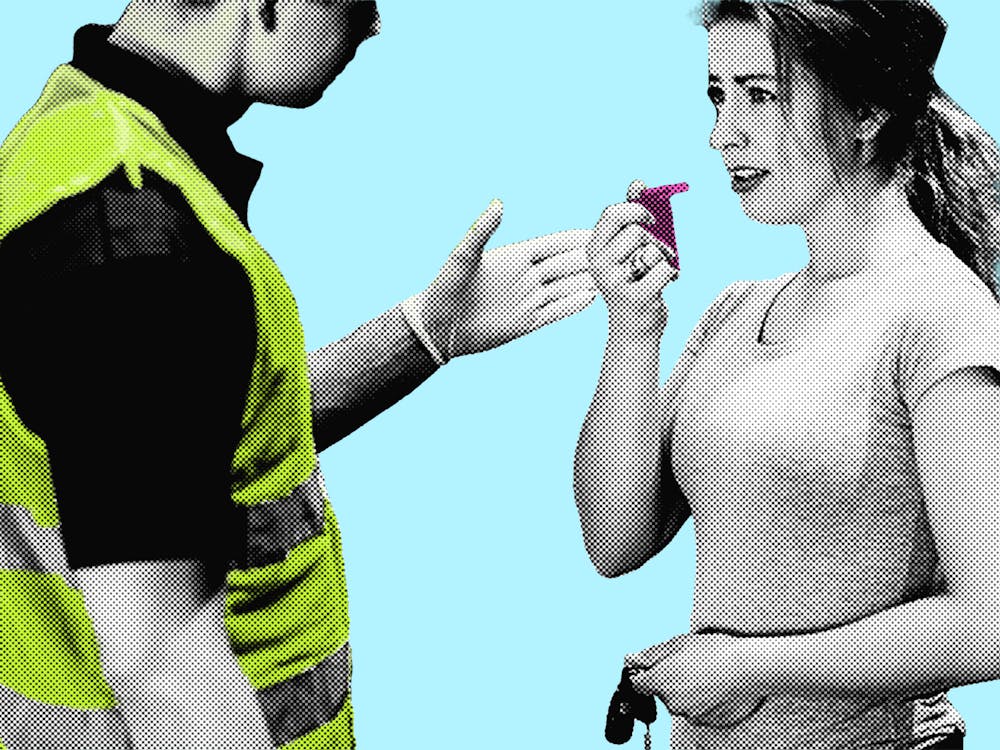After a driver struck and killed teenagers on two separate occasions — while driving recklessly in 2001 and again in 2023 — the victims’ parents came together to further punish repeat offenders.
Now, a Florida law will raise the maximum sentence for repeat offenders convicted of killing someone while driving or boating under the influence from 15 to 30 years, starting Oct. 1.
The same will happen for vehicular homicide convictions.
Trenton’s Law was proposed after 18-year-old Stetson University football player Trenton Stewart died after colliding with a speeding driver. Trenton was a cybersecurity major and aspiring fitness influencer. Nothing ever stood in his way when it came to achieving his goals, said his mother Mandi Stewart.
She described her son as “always being dedicated to becoming the best version of himself.”
“We always felt so blessed that we were chosen to be his parents,” she said. “He truly was just exceptional.”
On May 9, 2023, Trenton, who had recently moved home from college for summer break, was driving along a 45 mph road in Duval County. Ariel Monteagudo was driving his Mercedes Benz around 1 a.m. on the same road going the wrong direction at over 100 mph. He hit the brakes but not fast enough to avoid colliding with Trenton’s car head-on at 71 mph.
Monteagudo tested positive for cocaine and marijuana at the hospital, according to court records. However, because he activated his brakes before the crash, the court concluded his cognitive abilities remained somewhat intact and charged him with reckless driving, not a DUI.
Mandi knew something was not right. She hired a private investigator to gather evidence. The investigator returned a 101-page background check on Monteagudo, filled with “endless traffic violations, endless criminal charges,” Mandi said.
Monteagudo previously served 10 years in prison for killing 15-year-old Christina Ramos while recklessly driving in 2001.
Trenton’s death could have been prevented with a better system, Mandi said.
“The guy had been given so many opportunities or somehow continued to find a way to slip through the cracks,” Mandi said. “There were so many red flags.”
Monteagudo was found guilty of vehicular homicide, a second degree felony, on Jan. 17, 2025, almost two years after Trenton’s death. He will spend 12 years in prison for Trenton’s death and will never be allowed to legally drive again.
The Ramos and Stewart families worked together to make sure another family would never have to experience what they did.
Trenton’s legacy
Under current Florida law, the maximum sentence for any vehicular homicide, DUI or BUI manslaughter conviction is 15 years. The maximum sentence does not change, even if the defendant was previously convicted of the same charge.
Trenton’s Law will raise the maximum sentence for DUI or BUI manslaughter convictions to 30 years if the defendant has been previously convicted on either charge. The maximum sentence for vehicular homicide will also be raised to 30 years for repeat offenders.
Aaron Wayt, a DUI defense attorney and legislative co-chair for the Florida Association of Criminal Defense Lawyers, said defense lawyers are entering “uncharted waters” with this law, because repeat offenders for these charges are very rare.
People convicted of DUI manslaughter have their license suspended for life, so a repeat offense is unlikely. However, vehicular homicide charges have no life suspension requirements, which is what let Monteagudo back on the road.
“The vast majority, almost all of defense attorneys, have never encountered a situation like this,” he said. “This rarely happens.”
The Stewart family isn’t so sure. Trenton’s parents question the rarity of these cases, because no database easily shows when a repeat offender commits a DUI manslaughter or vehicular homicide.
“The handful of prosecutors that we have talked to … say unfortunately, there is no way to track it right now,” Mandi said.
“I don’t think it’s as rare as we all believe,” Trenton’s father, Robert Stewart, added.
Mandi and Robert said they’re advocating for a database to track repeated offenders and see how frequently repeated DUI manslaughters and vehicular homicides happen.
The law also makes refusing a breath or urine test during a DUI stop a misdemeanor crime. Currently, refusing a test is only considered a misdemeanor on the second offense, and a civil infraction on the first offense.
Refusing to submit to testing can now lead to license suspension for up to one year, 60 days in jail and a fine.
Wayt, the lawyer, said this part of the bill was added without consulting the public or criminal defense association. He mentioned breathalyzers used by police are often decades old, leading to false readings and causing people to appear drunk when they’re not.
Wayt often advises people not to agree to take a breathalyzer test for this reason, but now he can’t, he said.
“We, and the rest of the general public, were not allowed to weigh in on whether this change was good or not,” he said.
Mandi, meanwhile, said in order for both parties in the legislature to vote yes and pass the bill, it had to have at least one preventative measure, and this was the one agreed upon.
“My heart is always with prevention,” she said. “I feel like Trenton should be here, because I think our system could have done better.”
Contact Alexa Ryan at aryan@alligator.org Follow her on X @AlexaRyan_
Alexa is a second-year journalism and international studies student and The Alligator's Spring 2026 Enterprise Politics Reporter. She previously served as the Fall 2025 Criminal Justice Reporter. In her free time, she enjoys running, traveling and going on random side quests.






